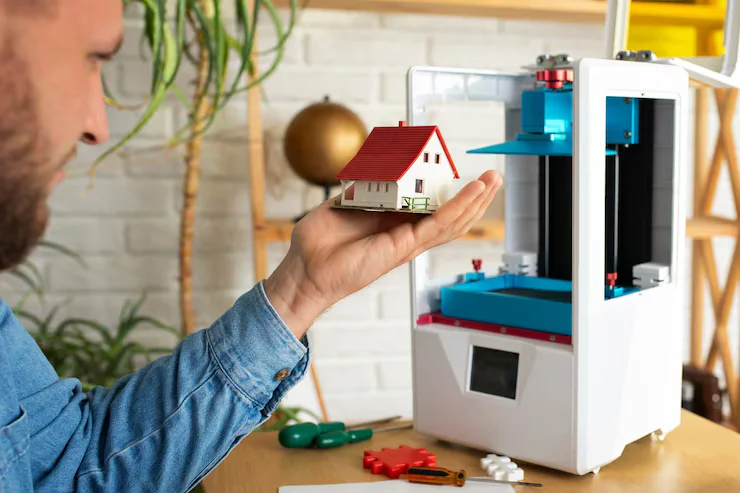Power outages are no longer rare events. With extreme weather, aging infrastructure, and a growing electricity demand, more and more people are thinking seriously about how to keep their homes running when the grid goes down. One of the best solutions? A backup home battery system.
But what exactly are these systems? How do they work, and are they worth the investment? Let’s break it all down in simple, no-nonsense terms.
So, what is a backup home battery?
In plain English, a backup home battery is a large rechargeable battery that stores electricity. You can draw power from it during an outage or when energy prices are higher than usual. These systems often work alongside solar panels, but they can also charge straight from the electrical grid when power is cheap or abundant.
When your lights go out, a properly set up battery automatically kicks in no loud generator noise, no fumes, no hassle. It’s like having a safety net for your electricity.
How does it work?
It might sound high-tech, but the concept is pretty straightforward.
- Charging: The battery gets charged during the day (usually from solar panels or the grid).
- Monitoring: It constantly monitors your power supply in real time.
- Switching: The second it detects a power outage, it seamlessly switches to battery power—most of the time, you won’t even notice.
- Recharging: Once the power returns, the battery goes back to charging, ready for the next time you need it.
Some systems even let you sell stored power back to the grid during peak hours, helping you offset energy costs.
Why are people installing these now?
Let’s be honest life without power is a huge pain. Losing heat, air conditioning, Wi-Fi, refrigerated food, or access to medical equipment can range from inconvenient to dangerous. That’s why more homeowners are choosing to install backup home battery systems.
Here are a few reasons people are making the switch:
1. Peace of mind
Knowing you won’t be left in the dark (literally) when the power goes out is a huge comfort. Whether it’s storms, wildfires, or aging power lines, having a battery backup means you’re covered.
2. Saving on electricity bills
If you pair your battery with solar panels, you can store free solar energy during the day and use it at night when rates are higher. Over time, this can make a serious dent in your utility bill.
3. Going green
If you care about the environment, a battery system allows you to rely less on fossil fuels and more on clean, renewable energy. No noisy, gas-powered generators—just quiet, efficient power.
4. Boosting property value
Energy-efficient homes are more appealing to buyers. Having a backup battery already installed could give you an edge if you ever decide to sell.
What types of batteries are out there?
Most home systems today use lithium-ion batteries, the same technology behind your phone or electric car. They’re compact, long-lasting, and low maintenance. Some older systems still use lead-acid batteries (like car batteries), but they’re bulkier and wear out faster.
A newer technology, flow batteries, is starting to make waves too. These are still pretty niche for residential use, but they promise long life and easy scalability.
Let’s talk cost
Here’s the honest truth: backup battery systems aren’t cheap. But they’re also not out of reach, especially with incentives and rebates available.
- Battery only: Expect to pay between $7,000 and $10,000, including installation.
- Battery with solar panels: Total costs range from $15,000 to $25,000, depending on your system size and setup.
Keep in mind that the federal government currently offers a tax credit for battery systems (especially when paired with solar), and some states have additional rebates or programs to help with the cost.
What should you think about before getting one?
Installing a backup home battery is a big decision, and it’s smart to do your homework first. Here are a few things to consider:
- What do you want to power during an outage?
Do you need your whole home backed up or just essentials like the fridge, a few lights, and the internet? - Do you already have solar panels?
If yes, a battery is a natural next step. If not, you can still use a battery charged from the grid. - How long do you want the battery to last during an outage?
Battery size matters here. Some can power your home for a few hours; others can go a day or more. - Do you get frequent outages?
If your area has a reliable grid, a battery might not be a top priority. But in blackout-prone areas, it’s a game changer. - What’s your budget?
Look at the total cost, including installation, maintenance, and any financing or incentives available.
Final thoughts
A backup home battery isn’t just for off-grid living or luxury homes. It’s quickly becoming a practical and even essential part of modern home energy systems. From keeping your family safe during an outage to cutting your electric bill, the benefits are real, and they’re growing every year.
If you’re serious about energy independence, want a greener lifestyle, or just hate the idea of sitting in the dark, investing in a battery system might be one of the smartest home upgrades you can make.







